Media coverage
Share

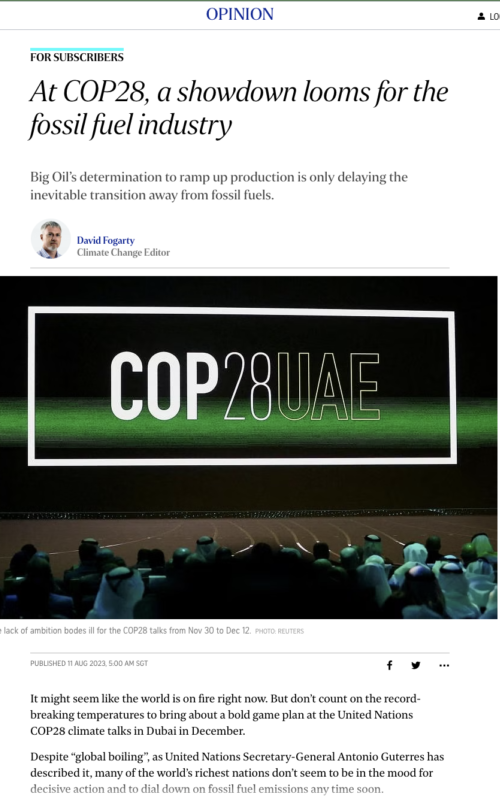
The Strait Times
Fossil fuel phase out looms as a big issue for this year's COP in Dubai - Bill Hare spoke to The Strait Times about what problems it presents for the UAE presidency.
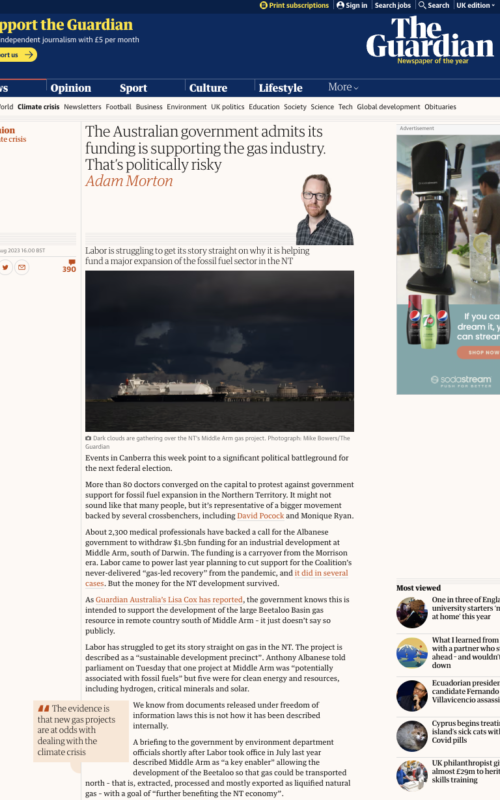
The Guardian
Adam Morton references our 'Gas is the new coal report' in his opinion piece for The Guardian.
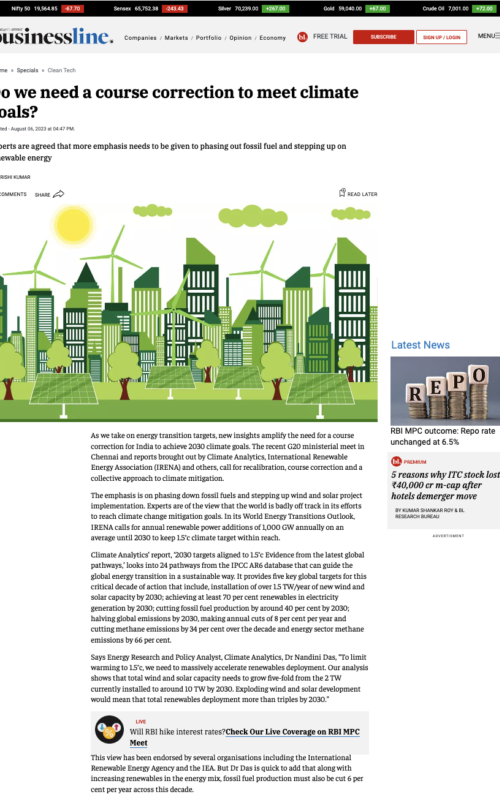
The Hindu
Dr Nandini Das spoke the The Hindu about our analysis of targets for renewable energy and fossil fuel phase out that are aligned with 1.5°C.

San Francisco Chronicle
Kai Kornhuber speaks to the San Francisco Chronicle about his research on Rossby waves and their role in the extreme heat in the US.
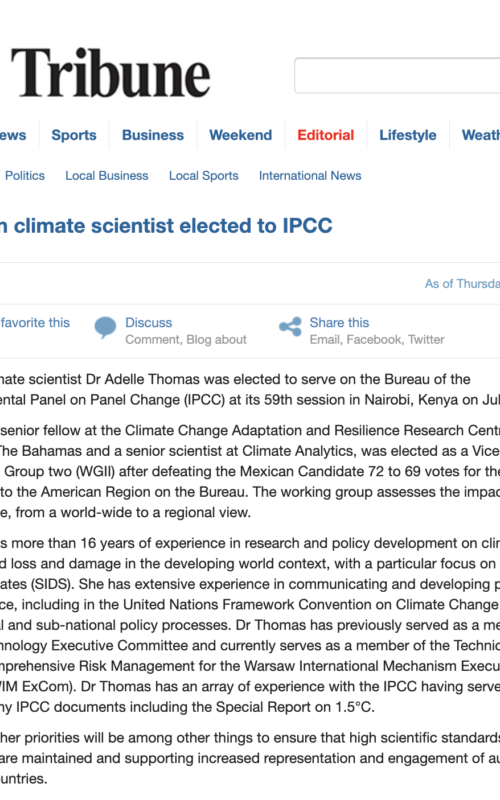
The Tribune
The Tribune covers the election of Dr Adelle Thomas to the bureau of the IPCC.
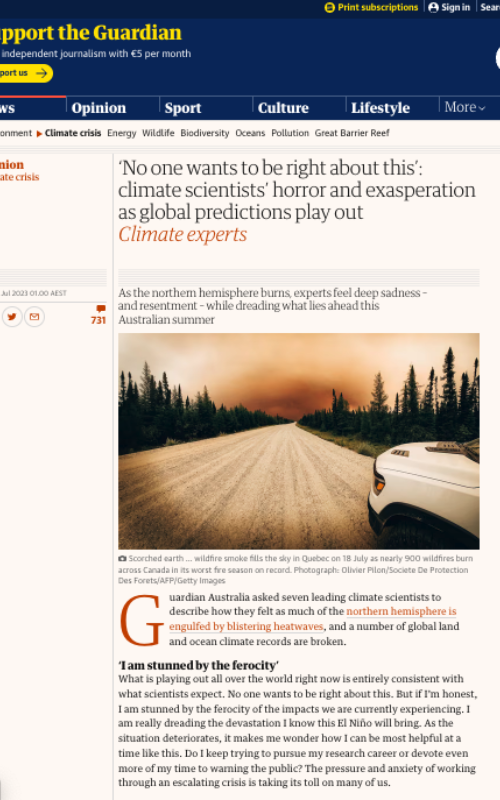
The Guardian
The Guardian Australia shares thoughts from climate experts, including our CEO Bill Hare, on the extreme weather we are seeing
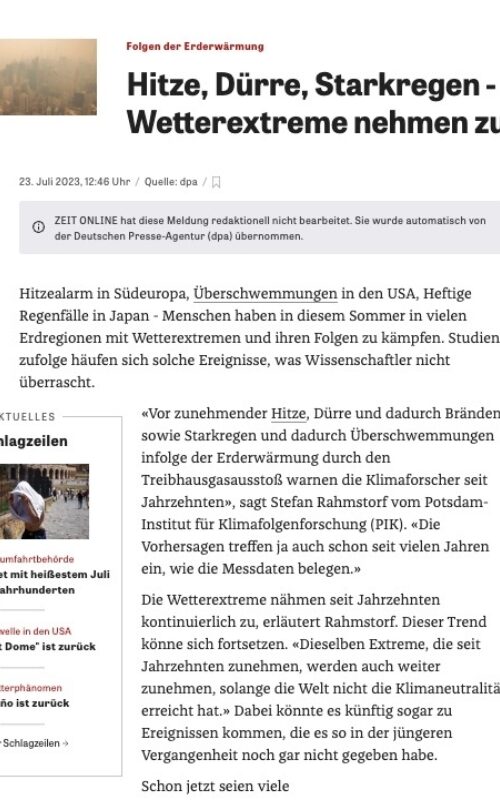
Zeit
Dr Kai Kornhuber spoke to German media about how climate change is driving the extreme weather in the Northern Hemisphere

The Washington Post
“We’re at 1.2 degree warming, and we know that certain kinds of heat extremes could increase in intensity by another 30 to 40 percent,” our CEO Bill Hare speaks to the Washington Post on climate impacts at higher temperatures.

